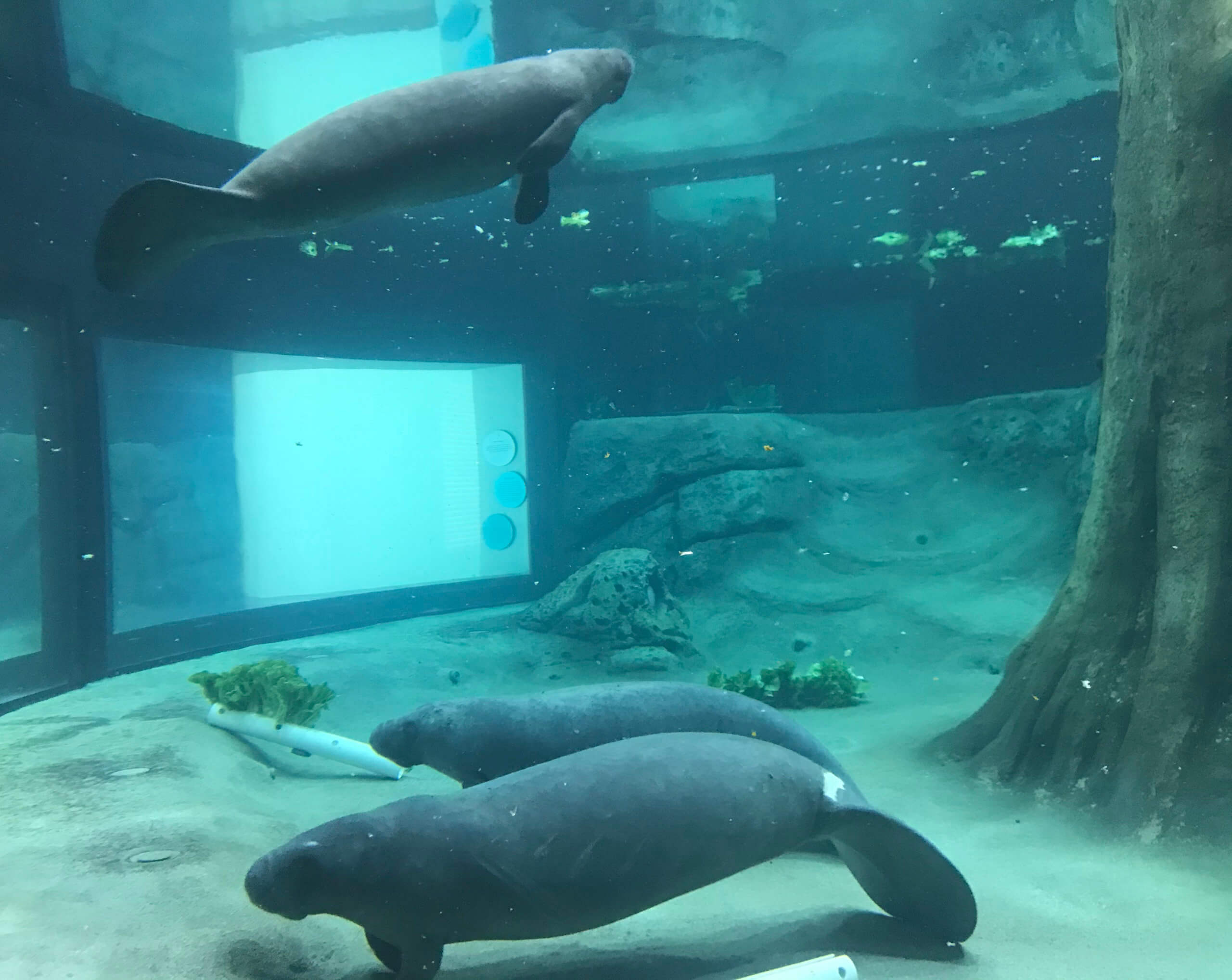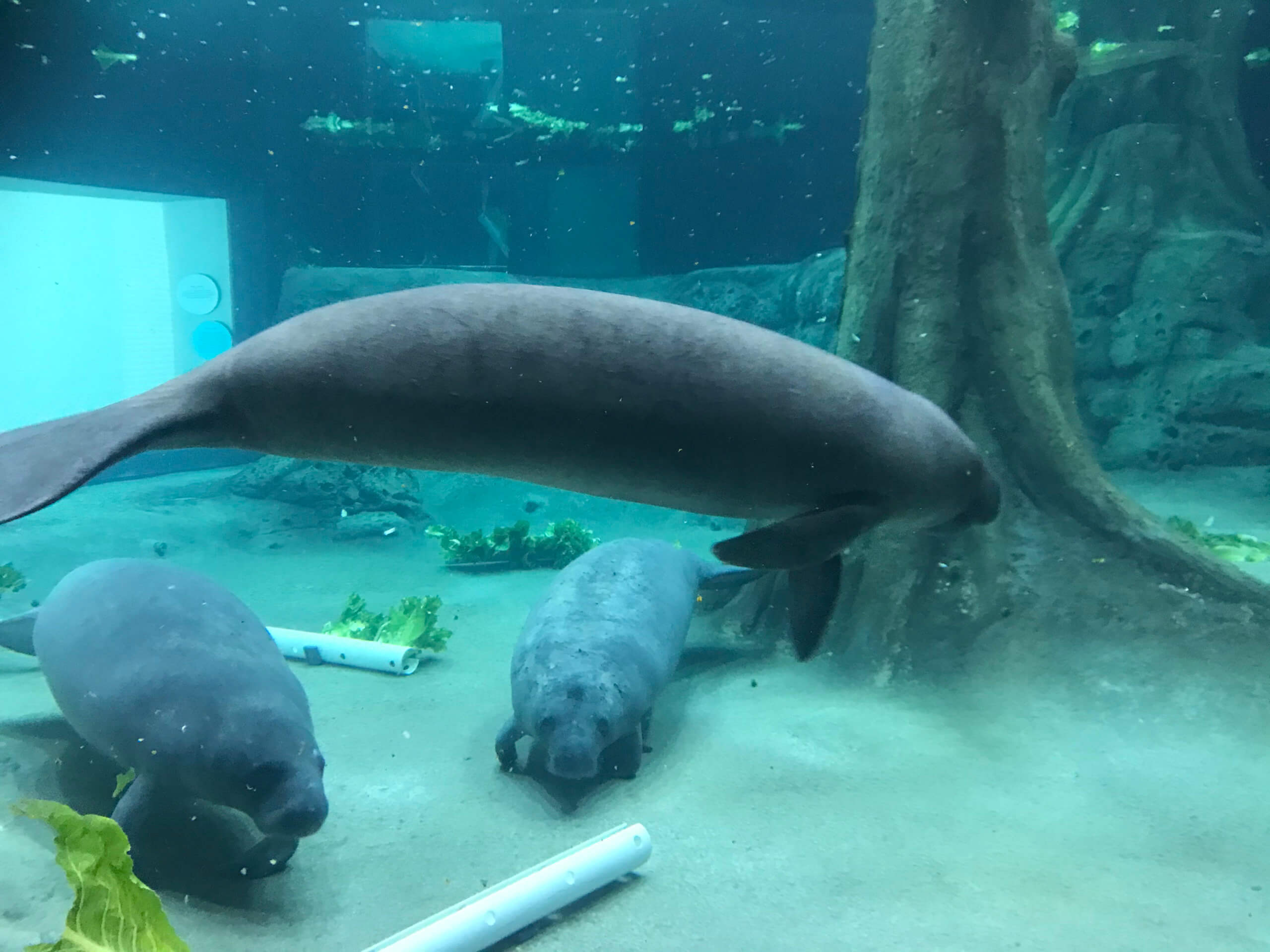Meet the Manatees
As a second stage rehabilitation facility, The Bishop Museum of Science and Nature provides a temporary home for manatees that will be released back into the wild after they have returned to health. The Bishop has been rehabilitating manatees since 1998. Manatees are cared for in the Parker Manatee Rehabilitation Habitat, which allows them to maintain natural behaviors. The Bishop has cared for 45 manatees, including our most recent arrivals:
It Costs $2,000 a Month to Feed a Manatee!
Florida’s wild manatees are facing more challenges than ever — this year, we’ve lost more manatees than any other year in our state’s history. Manatees need our help, and your monthly support as a Bishop Foster Friend will make it possible! Your monthly gift of just $10 will help us feed and care for rehabilitating manatees until they are healthy enough to go home.

Doscal returns to the wild!
Viva and Felicia return to the wild!
Some Common Reasons We Help Manatees:
Red Tide Exposure
A red tide, or harmful algal bloom, is a higher-than-normal concentration of a microscopic alga (plant-like organism). In Florida and the Gulf of Mexico, the species that causes red tide is Karenia brevis, or K. brevis, which produces toxins that can affect the central nervous system of fish and other marine animals, including manatees.
Florida manatees are herbivores, feeding on aquatic vegetation like seagrasses. Small crustaceans and barnacles grow on the blades of seagrasses and feed by filtering out particles from the surrounding waters. During blooms, red tide toxins accumulate in these crustaceans and, as manatees feed on seagrasses, they inadvertently ingest these crustaceans and the toxins they hold. If they ingest enough of these toxins, they can become very ill or even die.
Manatees are also exposed the red tide toxins when they surface to breathe and can develop respiratory infections that can also be fatal.
Cold Stress
Cold stress can occur when manatees spend prolonged periods of time in water colder than 68 degrees and begin having frostbite-like symptoms. They can also be susceptible to pneumonia.
Orphaned Calves
Manatees typically spend the first one or two years of their lives with their mothers, learning the ropes of how to find food and warm-water spots where they can safely pass the winter. If their mothers die, they need extra care until they’re big enough to navigate their environment. These orphaned animals are typically released during the winter months into groups of manatees congregated in warm-water spots in the hopes that they will find “mentors” that will help them learn the routes to and from warm-water spots.

